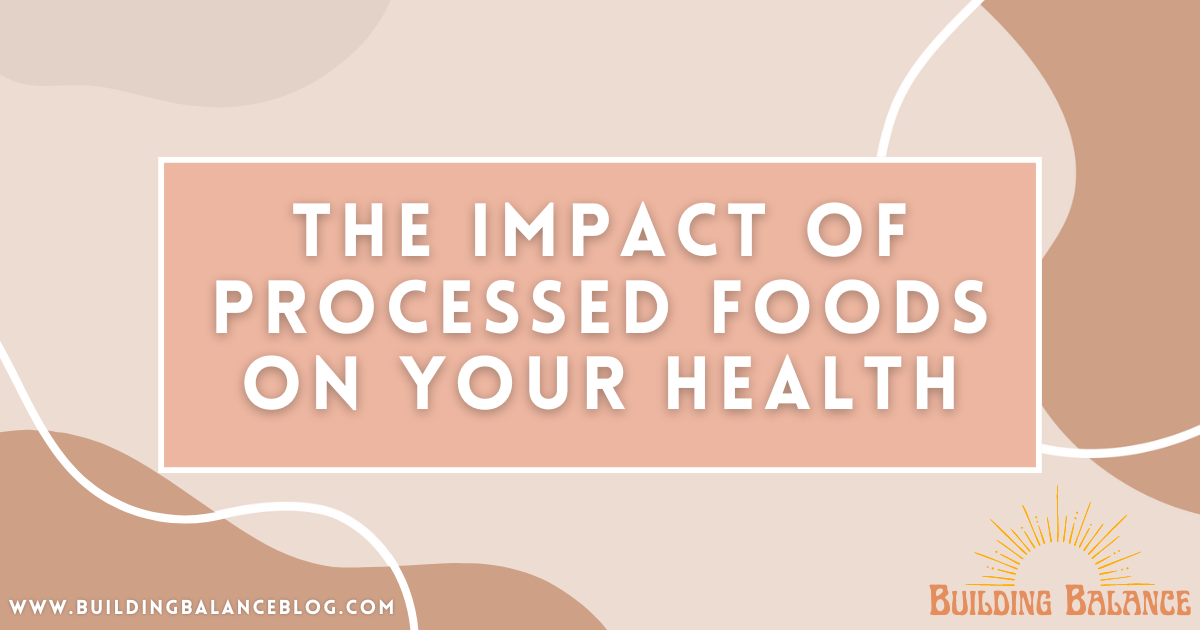
In our fast-paced world, processed foods have become a staple of many diets. Convenient, readily available, and often affordable, these foods offer a quick fix for hunger and cravings. However, beneath their convenience lies a plethora of hidden dangers that can significantly impact our health in the long run. Let’s chat about the profound effects of processed foods on our well-being, uncovering the hidden dangers they pose, and exploring smart alternatives for a healthier lifestyle.
Understanding Processed Foods
Processed foods undergo various mechanical or chemical processes to alter their taste, texture, appearance, or shelf life. These processes often involve adding sugars, unhealthy fats, sodium, and artificial additives, while stripping away essential nutrients and fiber. From sugary snacks and sodas to frozen meals and fast food burgers, processed foods come in many forms, enticing consumers with their convenience and palatability.
The Hidden Dangers
1. Nutrient Deficiency: Processing often removes or destroys vital nutrients present in whole foods, such as vitamins, minerals, and antioxidants. As a result, frequent consumption of processed foods can lead to nutrient deficiencies, compromising overall health and increasing the risk of various diseases.
2. Excessive Sugar and Unhealthy Fats: Processed foods are notorious for their high sugar and unhealthy fat content. Excessive consumption of added sugars can contribute to obesity, type 2 diabetes, heart disease, and other metabolic disorders. Similarly, the trans fats and refined oils found in many processed foods can elevate bad cholesterol levels and increase the risk of cardiovascular issues.
3. Artificial Additives and Preservatives: To enhance flavor, color, and shelf life, processed foods often contain a myriad of artificial additives and preservatives. These additives, including artificial sweeteners, flavors, and colors, have been linked to adverse health effects, such as allergies, hyperactivity, and even certain cancers.
4. Increased Sodium Intake: Processed foods are notorious for their high sodium content, which serves as a flavor enhancer and preservative. However, excessive sodium intake can elevate blood pressure, increasing the risk of hypertension, stroke, and kidney disease.
5. Negative Impact on Gut Health: Many processed foods lack dietary fiber, essential for maintaining a healthy digestive system. Moreover, the additives and preservatives present in these foods can disrupt the delicate balance of gut bacteria, leading to digestive issues and inflammation.
Smart Alternatives
While it may seem challenging to avoid processed foods entirely, making conscious choices and opting for healthier alternatives can significantly improve your overall well-being. Here are some smart alternatives to processed foods:
1. Whole Foods: Embrace a diet rich in whole, minimally processed foods, such as fruits, vegetables, whole grains, legumes, nuts, and seeds. These nutrient-dense foods provide essential vitamins, minerals, fiber, and antioxidants without the harmful additives found in processed foods.
2. Home Cooking: Take control of your meals by preparing homemade dishes using fresh, wholesome ingredients. Cooking at home allows you to monitor the quality of ingredients and avoid the excessive sugar, unhealthy fats, and sodium present in many processed foods.
3. Read Labels: When purchasing packaged foods, carefully read the ingredient labels and nutrition facts. Choose products with short ingredient lists containing recognizable, whole food ingredients, and minimize the consumption of items high in added sugars, unhealthy fats, and artificial additives.
4. Limit Convenience Foods: While convenient, pre-packaged snacks, ready-to-eat meals, and fast food options are often laden with unhealthy ingredients. Limit your intake of these convenience foods and reserve them for occasional treats rather than everyday staples.
5. Plan Ahead: Invest time in meal planning and preparation to ensure that nutritious options are readily available. Stock your kitchen with wholesome ingredients, prepare meals in advance, and pack healthy snacks to curb cravings and avoid the temptation of processed foods.
The impact of processed foods on our health cannot be overstated. From nutrient deficiencies and excessive sugar intake to artificial additives and preservatives, these hidden dangers can wreak havoc on our well-being. By opting for whole, minimally processed foods and making informed choices, we can mitigate these risks and pave the way for a healthier, more vibrant life. Remember, the key to optimal health lies in nourishing our bodies with wholesome ingredients and prioritizing quality over convenience.

